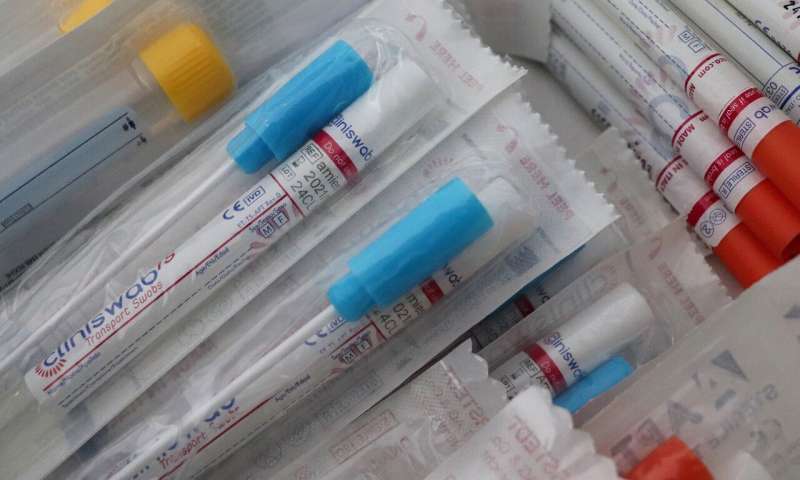Credit: Pixabay/CC0 Public Domain
The costly rollout of asymptomatic screening for COVID-19 at UK universities has found very few positive cases following its launch in December as part of the Government's ambitious £100bn Moonshot programme, finds an investigation published by The BMJ today.
It reveals that almost two thirds of higher education institutions are not collecting data on the number of students being tested and a third are not logging how many test positive. Experts have described campus testing as haphazard and messy with a price tag that is "outrageous."
On 17 Feb 2021 The BMJ sent Freedom of Information requests to the 216 universities and colleges eligible to receive public funding for twice weekly lateral flow testing for students, asking how much they received, how many tests they had carried out, and how many positive tests came back.
Among 69 institutions that disclosed three months worth of data, 1,649 positive results were reported from 335,383 tests carried out, a 0.5% positive rate.
The BMJ also found widespread reluctance among universities and colleges to share information about costs and the effects of testing on containing the virus.
Only 16 institutions disclosed complete data on their funding, the number of tests carried out, and the number of positive results. These showed that the government spent roughly £3,000 per positive test result yielded.
But experts said this is likely to be a vast underestimation of the full cost, as factors such as staffing of testing sites were not included.
Allyson Pollock, professor of public health at Newcastle University, and a vocal critic of the testing programme, said, "The clear message from the data is that the mass testing is haphazard, fragmented, disjointed and absolutely the antithesis of public health."
And she urged universities to abandon asymptomatic testing and instead focus on testing those with symptoms, particularly as students return to campuses and prevalence of COVID is falling to low levels.
Jon Deeks, professor of biostatistics at the University of Birmingham and leader of the Cochrane Collaboration's COVID-19 test evaluation activities, points to data from England's Test and Trace service which suggest that the cost of asymptomatic testing in schools could be as much as £120,000 per case found, and said it was crucial that the Department of Health and Social Care published an analysis of data that it was collecting from universities in England.
Angela Raffle, consultant in Public Health and honorary senior lecturer at Bristol University, who has worked for the UK National Screening Programmes since their inception in 1996, described the rollout of asymptomatic testing as "a lost opportunity."
She said the whole thing is "a desperate exercise in trying to get favourable publicity for number 10, trying to get rid of the Innova test mountain, and trying to change the culture in this country so that we start to think that regular tests for everybody is a worthwhile use of public resources, which it isn't."
The government told The BMJ that it was up to universities to determine their testing approach, but said it was committed to working with them to offer twice weekly asymptomatic testing to all students on campus.
A government spokesperson said, "Protecting communities and saving lives is always our first priority and every pound spent is contributing towards our efforts to keep people safe. Testing at universities is a key pillar in reducing transmission risks, and allowing more students to return to face-to-face study as safely as possible."
A spokesperson for Universities UK said, "Lateral flow device testing is not perfect, no test is. But they are easy to use and give rapid results, which can enable universities to quickly identify highly infectious asymptomatic individuals who could otherwise unknowingly be spreading the virus, and help them to follow the right course of action."
More information: Covid-19: mass testing at UK universities is haphazard and unscientific, finds BMJ investigation Journal, BMJ (2021). DOI: 10.1136/bmj.n848
Journal information: British Medical Journal (BMJ)
Provided by British Medical Journal
























